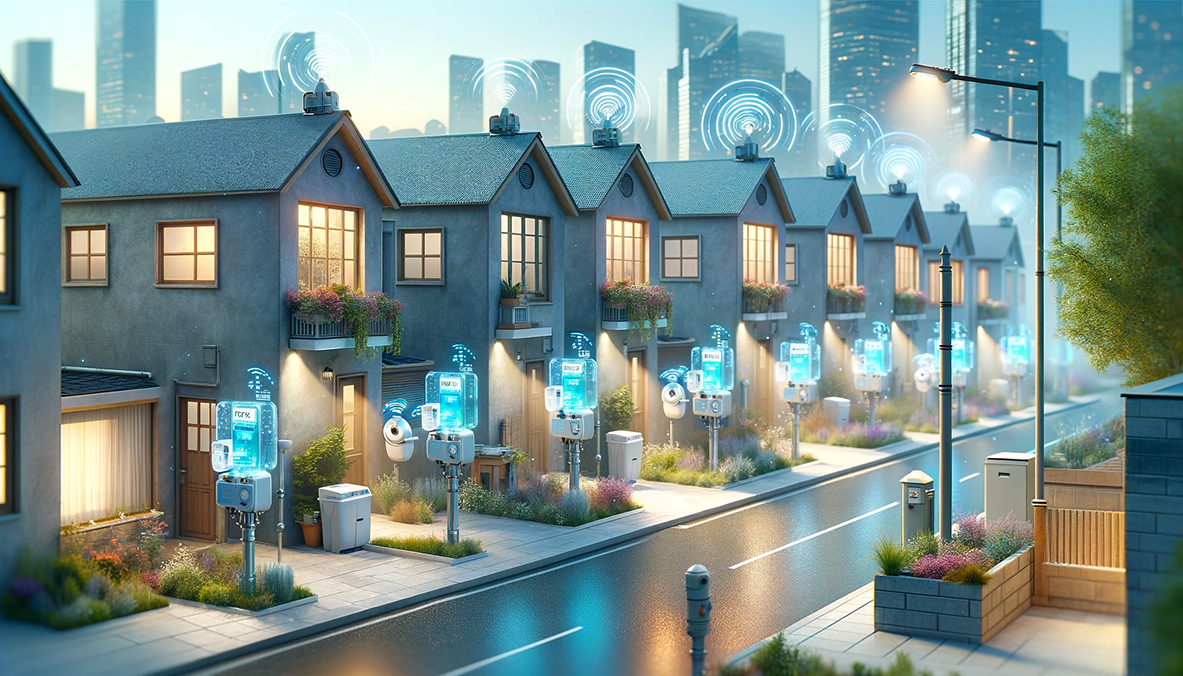The Future of Water Management: Harnessing AMR Technology
As the landscape of water management in the United States rapidly evolves, a standout innovation, Automatic Meter Reading (AMR) technology, is making significant strides. This technology marks a considerable leap from traditional water management methods, offering precision and real-time insights into water usage. AMR is not just another tool in the arsenal of water management; it represents a transformative force, propelling us towards greater sustainability and efficiency.
Understanding AMR: A Technological Breakthrough
AMR technology is a major advancement in water management, transcending the limitations of traditional metering methods. By automating the collection and transmission of water usage data to a central database, AMR brings about a paradigm shift to digital monitoring. This change is pivotal for several reasons: it ensures unprecedented accuracy in water usage data, eliminating the human errors and infrequency associated with manual readings. The real-time nature of AMR data collection means information is always current, enabling responsive and timely decision-making.
The detailed data collected by AMR systems provide a comprehensive view of water consumption patterns, extending well beyond basic volume measurement. For instance, in a pilot project in Dubuque, Iowa, smart water meters enabled citizens to monitor their home’s water usage every 15 minutes, resulting in increased awareness and a notable decrease in citywide water usage. The granular data from AMR is invaluable for identifying trends, managing resources and implementing conservation strategies.
Moreover, AMR technology streamlines the operations of water utilities. By automating data collection, it reduces the need for manual meter readings, thereby saving time and reducing operational costs. The frequent and accurate data collection facilitated by AMR leads to improved resource management and customer service. Additionally, one of the most significant benefits of AMR is its ability to quickly detect leaks, essential for preventing water wastage and mitigating damage caused by leaks.
The Multifaceted Benefits of AMR
The integration of AMR technology into water management systems has introduced a range of significant benefits, reshaping how water is monitored, billed and conserved. AMR enhances leak detection by providing real-time monitoring of water systems, quickly identifying anomalies in water flow that may indicate leaks. This rapid detection is crucial for conserving water and preventing the substantial wastage often associated with undetected leaks.
AMR also significantly contributes to economic efficiency. Accurate data collection ensures billing is based on actual consumption rather than estimates, fostering trust between consumers and utility providers and reducing disputes and errors in billing. Additionally, AMR promotes sustainability by providing detailed insights into water usage, empowering both utility providers and consumers to make informed decisions that support environmental conservation. This is particularly important in regions where water scarcity is a pressing issue.
Moreover, AMR encourages responsible water usage behaviors. Consumers, aware of their consumption patterns, are more likely to engage in water-saving practices, contributing significantly to water conservation efforts. The adaptability of AMR technology enhances its potential for future development, including the integration with other digital systems.
AMR in the Field: U.S. Trends and Observations
The The adoption of AMR in the U.S. reflects a significant shift in water management strategies. Many municipalities are implementing AMR for more efficient water usage monitoring, leading to better resource management and planning. This is especially relevant in areas facing water scarcity. The versatility of AMR technology is also evident in its widespread adoption in both commercial and residential settings. It aids in fair billing and encourages water conservation among residents.
Operational cost reduction is another significant impact of AMR. By automating meter reading processes, it saves on labor costs and improves overall efficiency. Additionally, AMR has positively impacted customer service within the water utility sector. The accuracy of AMR in recording water usage ensures that customers are billed fairly based on their actual consumption, leading to greater customer satisfaction and trust.
Looking Ahead: The Future of AMR
The future of AMR technology is filled with vast potential, particularly in the context of evolving smart city initiatives. The integration of AMR with other smart technologies, like IoT devices and advanced data analytics platforms, can make water resource management more efficient and sustainable. Future advancements in AMR technology are likely to focus on enhancing data analytics capabilities, providing deeper insights into water usage patterns, and contributing to the overall efficiency of water management. Additionally, the future of AMR includes greater customer engagement and participation in water management, fostering a more responsible and aware community.
In conclusion, AMR technology is marking a new era in water management. By providing precise tracking, equitable billing, and supporting conservation efforts, AMR stands as an essential tool in the sustainable management of water resources. As we continue to face the challenges of water management, the role of AMR is set to become even more central, guiding us towards a more efficient and sustainable future.
